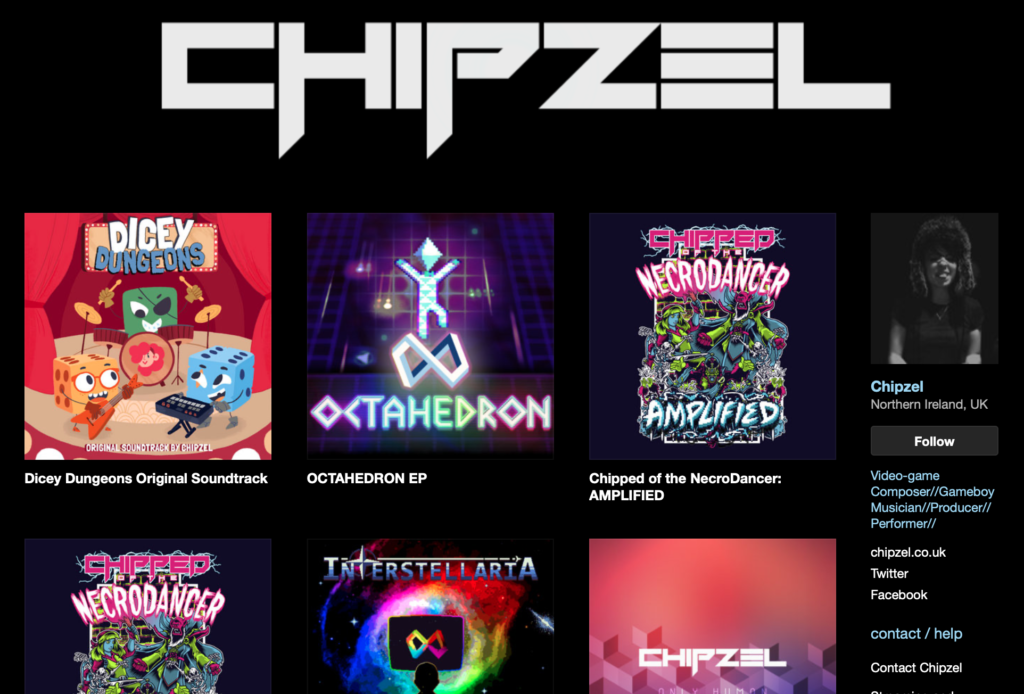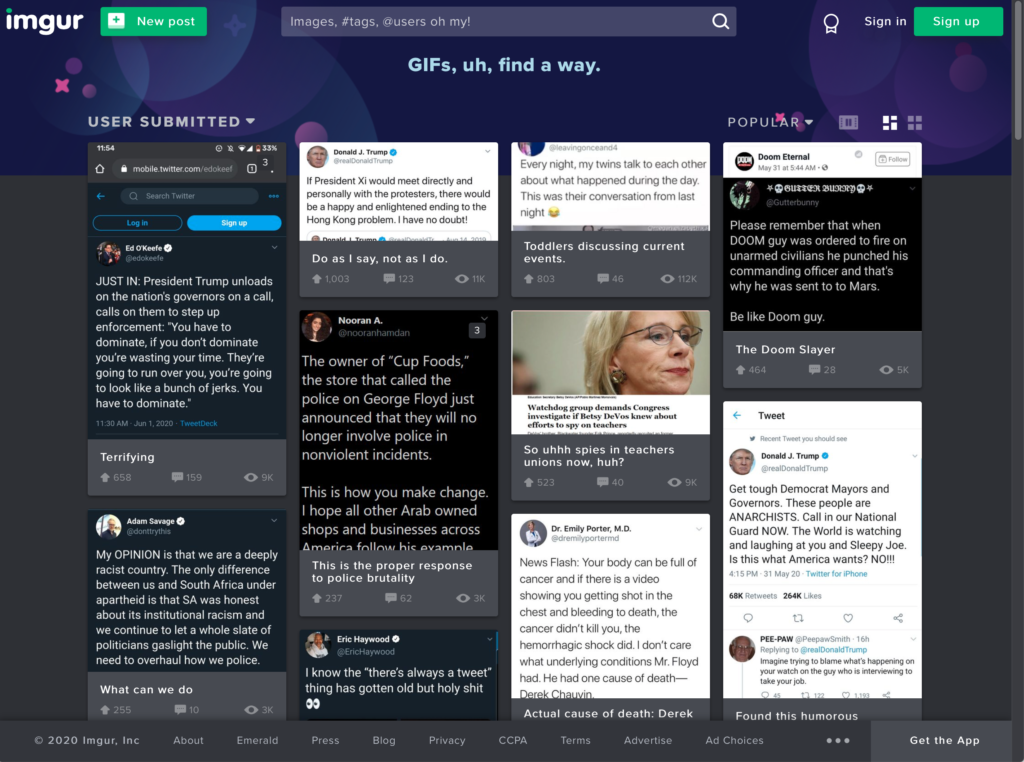I don’t have a lot of memories from when I was young. All I have are a few bits and pieces from my early grade-school days. However, one thing I remember pretty vividly was discovering a Space Invaders arcade game in the super market when I was 6. It started a lifetime pursuit of video gaming that has been obsessive at times.
I’ll be honest: I stunk at early coin-op video games. I couldn’t clear 4 boards in Pac-Man. I couldn’t get through 3 levels of Donkey Kong. I fared a little better in Asteroids. It wasn’t until Defender that I found a game I could actually play fairly well. I got to where I could always get to the space stage, and usually back to Earth again. This was around 6th grade for me, and it was probably just a function of getting a little older, and able to understand more of the mechanics.
By this time, I had a Commodore 64 at home, and was playing a lot of games on it, too. Badly, of course. Hard Hat Mack stood out as a platformer which was particularly difficult, but one which my sister and I spent a lot of time with. There was Archon, which I mastered. And M.U.L.E., which I could win. But getting good at these games came at a cost. I, uh, “went through” several joysticks during this phase.
The landscape truly changed for me in my sophomore year of high school with the release of The Bard’s Tale. As much time as I had been spending with video games, in general, they were self-limiting because of the difficulty. But The Bard’s Tale was different. If you were getting beat by the game, you could retreat, lick your wounds, level up, buy better gear, use a different strategy, and then have another go. This was different. It wasn’t so punishing. I played a lot of Bard’s Tale. My sessions would last so long that I took the cover off the floppy drive, and used a house fan to keep it cool. I’ve never been any good at staying up all night, but I do remember playing the game for 25 hours straight once. Then there was Bard’s Tale 2 and 3. And Centauri Alliance.
During college, some good friends a couple doors down had a Nintendo. I missed out on the first Zelda, because I didn’t have one, but I remember staying up many nights playing Zelda II. I can’t remember for sure if I beat it, but I think I did. I do remember it being super difficult. It was the first time that I broke through the “git gud” in order to play a game. I know what this looks like. I know what it feels like.
After 30-35 years of obsessive video gaming, I’ve noticed that I’m really slowing down. There are times where I don’t really want to play video games, but I’ll play one any way, because there’s nothing else I want to do instead. There’s not much I want to stream, and even though I read voraciously as a kid, I don’t enjoy it very much any more.
My issue with gaming and difficulty has really been coming to a head with the quarantine. I’ve been part of a great group of guys who had been playing Gloomhaven every week for several months leading up to the pandemic. To keep playing, I bought 4 of us the “game” Tabletop Simulator on Steam, which has a free plugin for playing Gloom. We tried it out over the course of a couple sessions, and found that it was fiddly, and prone to irreversible error. So we kept looking for something we could all play online, and finally settled on Elder Scrolls Online. That first week, another friend turned to me at our first streaming-only church service, and asked, “So what MMO are we going to start playing?” I said, “Funny you should ask…”
We’ve been playing it a lot. Like, a LOT. I just checked Steam, and it reports that I’ve spent 247 hours with it in the past 2 months. That’s 6 man-weeks. That represents a solid chunk of time I could have spent doing something else. Something productive. Something self-improving.
Two of the other guys had played a lot of World of Warcraft, but I’ve never played an MMO before. I was prepared for the infamous WoW “grind.” ESO is not like this. You can max a character in probably 20 hours. Then ESO’s system of Champion Points kicks in, and starts a long process to max out. But! Those CP’s are shared amongst your characters. I really like this system. It’s not overly grind-y. If you start a new character, you can get them into the CP fairly quickly, and then they also collect and share CP’s with all of your other characters.
The problem for me has been player-versus-player. I never wanted ANYTHING to do with PvP, because I didn’t want to be humiliated by “bucket” players. However, in my quest for sky shards and their attendant skill points, I ventured into Cyrodiil, and into raw player-vs-player interaction. As predicted, everyone I’ve ever run across has killed me in a couple of hits. If I even bothered to try to fight back, I never even scratched my opponent. Likewise, the battlegrounds are an utter joke for me.
This led me to get serious about looking at my build, and what sort of damage a magicka sorcerer should be able to do. Based on build guides I had read, I thought I had a decent setup for PvE. Then one of my guys joined a PvE guild, and told me that they ran trials and world bosses on a regular schedule, so I joined too.
I joined the guild’s Discord. Before my first run began, I asked what sort of DPS numbers they would expect me to be doing, and the clan leader said “around 20K.” I had just used a target dummy before this, and had gotten 18K DPS, so I thought I was good to go. We ran the trial, and the combat metrics add-on showed me that I had done a mere 3.3% of the total damage in the final fight. I was doing about 3,800 DPS. It was, frankly, embarrassing. Turns out the dummy I had used in the clan-leader’s house was one which represented having all the buffs you could get in a trial, from the whole group.
So I’ve looked at various other build guides. I’ve watched videos. I’ve respec-ed. Crafted and bought better gear. Spent more CP. Last night, after staying up too late, I tried a target dummy with more changes, and I got 5,500. 5,500? 5,500! All of the guides I read agree that 20-25K should be no problem. Like, no effort at all. Lots of people say that they can get upwards of 40K, but many agree this takes real talent at “weaving.” I see people who demonstrate 60-70, and I’ve even seen one at 95! I’m getting all of 5.
I saw a post on the ESO forums from a guy who was stuck at 15K, and people were telling him “simple” changes to get into the 20’s. Meanwhile, I can’t even get on paper. And the worst part is that I have literally no idea how I could be doing any better. OK, sure, I could grind to CP810, and then grind trials, group delves, and world bosses to get top-tier gear, and then spend the resources to improve them, re-enchant them, and re-trait them, but the way the math works in the game, these kinds of changes look like they might add up to 20-30% better stats. I’m behind the curve by at least 400-500%; maybe even 1000-2000%. More CP and better gear will not fix my problem, and I don’t know how I could be executing people’s supposed 40K-rotations any better.
And even if I could master some 40-60K build/rotation on a target dummy, I literally have no idea how this would translate to actually running around the game, where you have to keep moving to avoid enemy attacks and AoE’s.
In all my years of gaming, I’ve never been stuck like this. And I’ve played Battlefield! I know how to work on fundamentals and learn the mechanics, and get to a competitive place in difficult games. I may not win, but I’m almost always a threat. I literally have nothing this time around. I realize that this is the game. The weaving and the rotations, working in tandem with your gear, is the main mechanic. I get it. But, as of this writing, I have no clue as to what to work on or change.
I’ve been noticing a trend with me and video games. I think it started with Rogue Legacy. This is a great game with terrific mechanics, wonderful graphics, good music, a great premise… and I absolutely suck at it. I can get to a certain point, and then I just can’t go any further. I’m not good enough to get far enough into a run to earn enough gold to pay for any of the available upgrades, and the restart “tax” effectively stops any further progression. Which is too bad, because otherwise, I love it!
Other games that come to mind are Crystal Catacombs (which I helped fund), Wasteland 2 (which I also helped fund), The Binding of Isaac, FTL, Dicey Dungeons, and Children of Morta. All of these are games I like, but which get to a level of difficulty I just can’t be hassled to overcome. These are mostly short-run, “rogue-like” games, but there are triple-A’s in there too, like Dishonored, which made me give up early on because every approach I tried to be stealthy on one level wound up failing. I just don’t have the requisite patience. Then there are games like Spider-Man PS4 and Borderlands 3, which are such utter slog-fests, that they just wear me out and take the fun out of it. And, finally — and especially — DOOM Eternal. I’m trying to play it on the easiest level, and it’s still such a chore to clear the levels that I consider the $90 super-deluxe pre-order (because I loved the first one so much) to be akin to throwing my money in the toilet, because it’s just not… you know… fun! The first one was amazing. This one? Ug.
It would be one thing for me to complain that I’m an old man now, and don’t have the patience to “git gud” at the “hard” games any more, but most of these are more-casual games, so I’m kind of stuck with modern gaming, in general. It’s kind of depressing to effectively be told that my favorite pastime is forcing me out because I suck at it. I guess the industry is telling me to go suck my thumb and play Minecraft or Terraria or something, but those kind of games never appealed to me.
What’s been surprising to me is that I can easily solo the content I’m supposed to be able to in ESO, so I’m clearly not doing something fundamentally wrong. But I’m also clearly not doing enough right to succeed at the end-game content, and there are no hints or clues from going through the game missions to point me towards what I should be doing any differently. I don’t know if I’m going to continue trying to fool with this or not. I don’t know what comes next, but I felt the need to save at this checkpoint, and get my thinking out of my head.
And maybe it’s time that I don’t figure it out this time.



